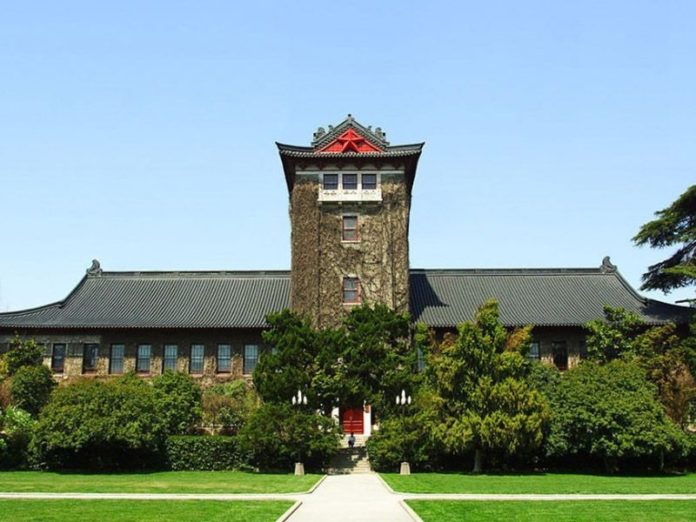Conference Background
The global economy is experiencing uncertainties in trade and investment unseen since the global financial crisis in 2008. Uncertainty in the global policy environment for investment has undermined the confidence of both entrepreneurs and investors. Trade tensions have further heightened such uncertainty for businesses and risk disrupting global value chains and investment patterns, especially in regions tightly linked to the US and China. There is a danger of slowing growth in the world’s two largest economies, which will weigh heavily on global growth. Furthermore, economic, political and geopolitical uncertainty has increased in areas, including Europe and the Middle East, brought by rising protectionism, trade disputes and shifting geopolitical alliances and new technologies. As a double-edged sword, new technologies disrupt existing business models on the one hand, while on the other hand could potentially help multinational firms address the concerns about the changing rules and processes of the existing global trading system under these accumulating risks. In this period of coexisting danger and opportunity, how will these countervailing forces shape the new growth and competitive strategies of multinational firms?
 New technologies, such as IoT, AI and Blockchain, are changing the business world in unprecedented ways. Multinational firms capable of exploiting these technologies will radically streamline and enhance their existing processes, create entirely new business models, and develop innovative products and services that cater to a new age structure of consumers. For example, the number of people aging 60 and over is expected to double to more than two billion by 2050. How to make appropriate investment decisions and take advantage of new technologies and demographic shifts requires innovative strategies by managers of multinational firms. Uncertainties in international trade, no matter whether between developed and developing countries, such as the recent trade war between the US and China, or between developed countries, highlighted by Brexit, will further challenge multinational firms to explore global business opportunities in new modes.
New technologies, such as IoT, AI and Blockchain, are changing the business world in unprecedented ways. Multinational firms capable of exploiting these technologies will radically streamline and enhance their existing processes, create entirely new business models, and develop innovative products and services that cater to a new age structure of consumers. For example, the number of people aging 60 and over is expected to double to more than two billion by 2050. How to make appropriate investment decisions and take advantage of new technologies and demographic shifts requires innovative strategies by managers of multinational firms. Uncertainties in international trade, no matter whether between developed and developing countries, such as the recent trade war between the US and China, or between developed countries, highlighted by Brexit, will further challenge multinational firms to explore global business opportunities in new modes.
Besides disrupting markets and competition, rapidly evolving new technologies are also changing the nature of work and how work is done. Democratization of work empowers individual employees and enhances their autonomy in decision-making. It challenges our long-held assumptions about leadership, organizational operating models, workforce engagement, culture and purpose, and the future of the profession in human resource management. We are moving from a world of hierarchical organizational structures toward a flat world where human resources can be digitally activated, deactivated, and reconfigured as needed and where needed. In addition, new technologies have popularized social media and offered new models of communication and collaboration within and between organizations. Working forces are organized in a flat, interconnected, dynamic, and creative world. Imagine an interconnected world where most (or a significant percentage) of the people doing the work are not our employees, but rather freelancers who have complete control over what work they choose to do, when they do it, where they do it, with whom they do it, and why they do it. The challenge of building a productive work community in such an environment will reshape the role of leaders and human resource professionals. Successful global investments and multinational operations will force international managers to innovate in HRM practices to support the implementation of new corporate strategies.
In order to rise to these new challenges caused by the ongoing massive demographic transformation and new technologies, managers call upon innovative HRM research and practices. To explore solutions to these issues, Nanjing University will host the Tenth International Symposium on Multinational Business Management on June 19-21, 2020. This symposium follows the earlier conferences held in 1992, 1996, 1999, 2002, 2005, 2008, 2011, 2014 and 2017. The symposium aims to provide a forum for scholars, entrepreneurs, and CEOs from multinational firms to discuss how corporations can create new business models, explore more business opportunities globally and reshape the relationship between human resources management and the advancement of new technologies. The theme chosen for the Symposium is “Multinational Business Management—Global Investment, New Technologies and Innovative Human Resource Management”.
Call for papers

Nanjing University School of Business calls for academic papers from scholars, experts, and practitioners at home and abroad.
Submissions may include theoretical issues, new ideas, methodological issues, empirical studies, or case studies in the field of enterprise management and developments of Chinese and/or multinational corporations confronting changing global investment patterns, new technologies, and human res
ource management challenges.
Research topics related to corporate strategy, organizational behavior, human resource management, corporate finance and investment, e-commerce, operations management and marketing are all welcome.
Papers submitted to the symposium must be in English. The working language for the plenary sessions of the Symposium will be English. Simultaneous interpretation will be provided for plenary sessions. No interpretation will be provided for parallel sessions. All paper presentations and session discussions will be in English.
For the full Call for Papers, please follow this link or download the Call for Papers.






















